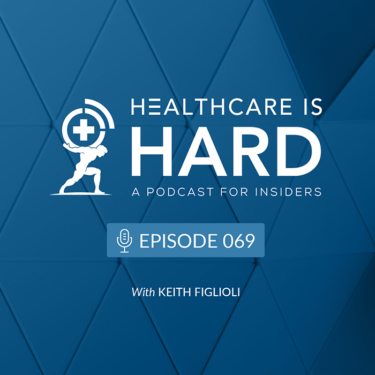
OSF HealthCare stands as a model health system for those who want to do innovation right. One of the defining characteristics of the Peoria, Illinois-based system is how it aligns innovation with operations for everyone – all 24,000 employees across 159 locations, including 16 hospitals.
Becky Buchen is responsible for driving innovation at OSF HealthCare. As SVP of Innovation Operations she works to engage and educate people on the innovation process, leveraging the eco-system for innovation built at OSF, including simulation, analytics, OSF Ventures, Innovation Studio, Digital Innovation Development and Performance Improvement.
Becky’s background in performance improvement has been a major influence in OSF HealthCare’s approach to innovation. Prior to her role leading innovation, she served as VP of Performance Improvement where she focused on implementing methodologies to monitor, assess and improve patient experience, patient outcomes, and overall operations.
In this episode of Healthcare is Hard, Becky talked to Keith Figlioli about how OSF HealthCare formalized its vision for innovation more than a decade ago and the thoughtful approach to ensuring that it would be fully integrated – not simply a “bolt on.” The goal was to truly make an impact and transform how care was delivered across the organization, and to do so, OSF HealthCare recognized that it had to apply the same level of rigor for exploring, testing and measuring innovation initiatives as it historically had to performance improvement.
In her conversation with Keith, Becky discussed specifics about OSF HealthCare’s approach to innovation that both digital health entrepreneurs and other health systems can learn from. Some of the topics they discussed include:
- Integrating innovation into culture. Perhaps the most visible example of OSF HealthCare’s commitment to integrating innovation into every aspect of its operations is the physical footprint. At its main campus, OSF HealthCare has an entire building dedicated to innovation, including two floors built for simulation, allowing clinicians to test and understand new approaches in a safe space, two floors housing its healthcare analytics division, and much more.
- What health systems are getting wrong (and right). To approach innovation successfully, Becky says health systems need to first have a fundamental understanding of the problems they’re trying to solve. She warned of dedicating resources towards solutions that are looking for problems. OSF HealthCare learned to avoid this trap early, but Becky says it’s still an area of caution for some systems. She talked about how critical it is to pick problems that are big enough to make a significant impact when they’re solved in new and different ways.
- Retooling and reskilling due to artificial intelligence. Becky talked about the healthcare industry being “data rich and information poor,” and described efforts to centralize data and improve data quality as a critical step to driving value from innovation. While tools like those being explored with generative AI will ultimately allow healthcare organizations to operate more efficiently, data quality and proper governance are essential to establish first. And after that, healthcare organizations should be thinking about how they will need to retool and retrain frontline operators and clinicians.
To hear Becky and Keith discuss these topics and more, listen to this episode of Healthcare is Hard: A Podcast for Insiders.
